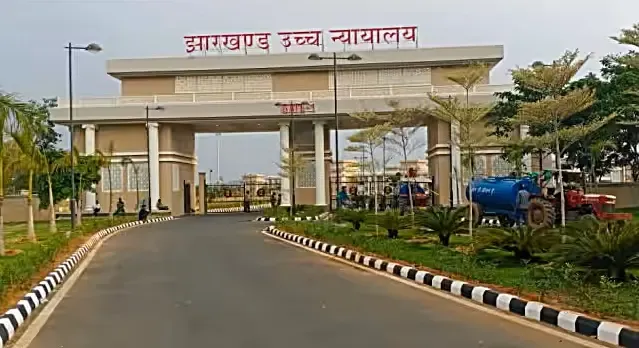Why Did the Jharkhand HC Deny Lifting the Stay on Sand Ghat Allocations?

Synopsis
Key Takeaways
- The Jharkhand HC has upheld a stay on sand ghat allocations.
- Compliance with PESA regulations is essential.
- Local governance plays a crucial role in resource management.
- The state government has not yet finalized the PESA rules.
- The next court hearing is on October 30.
Ranchi, Oct 9 (NationPress) The Jharkhand High Court on Thursday dismissed the plea from the state government aimed at lifting the stay on the distribution of sand ghats and various minor mineral sites throughout the state.
A division bench comprising Chief Justice Tarlok Singh Chauhan and Justice Rajesh Shankar, while reviewing a contempt petition, reaffirmed that the prohibition remains effective until the state government enacts the rules under the Panchayat (Extension to Scheduled Areas) Act, 1996 (PESA).
Advocate General Rajiv Ranjan, representing the state, informed the court that feedback on the draft PESA regulations had been requested from 17 departments, although five departments had yet to provide their input.
He noted that once all feedback is gathered, the draft will be forwarded to the Cabinet for approval, after which the rules will be enforced.
The Advocate General requested more time to finalize the process, but the bench upheld its interim order barring the allocation of sand ghats and minor mineral leases. The next hearing on the matter is scheduled for October 30.
Principal Secretary of the Panchayati Raj Department, Manoj Kumar, was present during the hearing as mandated by the court.
Previously, on September 9, while addressing a contempt petition filed by the Adivasi Intellectual Forum, the High Court had prohibited the state from granting leases for all kinds of minor minerals, including sand ghats, until the PESA rules were put in place.
The court had earlier remarked that the state government was disregarding the essence of the 73rd Constitutional Amendment, which empowers local entities in Scheduled Areas to oversee land and natural resource management. Despite repeated instructions, the state has failed to implement the PESA regulations within the specified timeline, the court stated.
In July 2024, during a public interest litigation, the High Court had ordered the government to finalize the PESA rules within two months, emphasizing that they must be consistent with the aims of the 73rd Amendment and the PESA Act.
The Adivasi Intellectual Forum subsequently filed a contempt petition, citing the government's failure to comply with the court’s directive.










